To achieve our vision of a sustainable, fair and inclusive world, Both ENDS works to empower civil society, to change the system so it prioritises people and the planet, and to support transformative practices. The numbers and successes below together show the broad variety of our achievements along each one of the three pathways.
STRONG CIVIL SOCIETY
Both ENDS works with civil society organisations around the world. We support them financially, but also engage in joint strategising, mutual capacity development and collective advocacy efforts. Our partner network embraces the whole world. The map below shows where our partners are situated; their activities might cover even more countries:
SYSTEMIC CHANGE
In order for systems to prioritise people and the planet, Both ENDS and partners aim to change the system step by step, policy by policy. Where policies are already strong, they need to be implemented, and where they are absent, we advocate for new ones to be enacted, on all levels:
TRANSFORMATIVE PRACTICES
According to Both ENDS and partners, transformative practices are the future. There are many of these bottom-up, planet-friendly practices. Below some numbers of a selection of practices that many of our partners work on. Also important is to take into account the gender aspect of these practices, in order for men and women to benefit equally:
SOME EXAMPLES OF OUR IMPACT IN 2021
STRONG CIVIL SOCIETY
- Repression, harassment and violence against environmental human rights defenders – our partners among them – is on the rise. In 2021, the GAGGA alliance of which Both ENDS is part, commissioned in-depth research to learn more about how women and girl environmental defenders (WGEDs) understand and experience structural violence, their diverse strategies for dealing with it and what kind of support they want and need from donors. Meanwhile, as harassment of communities and organisations opposing the EACOP pipeline in Uganda intensified, Both ENDS and the network members have called on governments and the EACOP companies to take action to ensure the safety of environmental human rights defenders.
- During various moments in 2021, seven FGG partners from Manila (the Philippines), used their strengthened lobby and advocacy capacities in (i) consultations with Atradius DSB and due diligence consultants of the project’s lenders group, and (ii) jointly submitting four letters of concern, in relation to the New Manila International Airport (NMIA) project, addressed to Boskalis, Atradius DSB, The Netherlands Ministry of Finance and the Netherlands Ministry of Foreign Affairs. Both ENDS provided financial support, facilitated stakeholder meetings and access to Dutch actors, and jointly strategised with partners.
-
RSPO Outreach to intermediary organisations initiated by Both ENDS together with the Forest Peoples Programma (FPP) and the RSPO secretariat, led RSPO to enter into partnership with Both ENDS’ partners and contacts. These conducted trainings, funded by RSPO, for Southern CSOs, communities, women’s organisations and workers, on issues of human rights and women’s rights. This enabled amongst others (indigenous) women, environmental and human rights defenders and affected victims of land grab and other violations to voice their concerns, issue complaints through RSPO’s complaints system, and negotiate remedy. In some instances, it helped bridge the divide between communities and plantation companies. It also helped increase grassroots contribution to RSPO policies and to concrete remedial measures.
-
In West Kalimantan, Indonesia, twenty indigenous women participants from four communities who are involved with existing cases with oil palm plantations and the forestry sector, followed a training on women leadership for human rights and environmental defence. They have strengthened their leadership capacity and women activism and improved the ability to advocate for women issues in their own home communities. Subsequently they received training on understanding human rights and how to apply FPIC, in particular community and gender based human rights and environmental defending monitoring systems. Actual advocacy will follow in the upcoming year. Both ENDS contributed with financial support.
SYSTEMIC CHANGE
- In close collaboration with allies and partners from Mozambique, Ghana, Uganda and Togo, the Netherlands and other countries, in 2021 Both ENDS stepped up the pressure on governments, including the Netherlands, to put an end to export credit support for fossil fuels. By the end of the COP26 in Glasgow, 34 countries, including the Netherlands, and five international financial institutions signed a joint statement agreeing to end new, direct public support for the international unabated fossil fuel energy sector by the end of 2022 Also after seven years of unwavering pressure, we welcomed ABP’s momentous decision, announced in October, to stop investing in oil, gas and coal producers and to sell off its current holdings by early 2023.
- Policy makers of Burundi committed to review all current Bilateral Investment Treaties (BITs) for possible stopping and renegotiation during a workshop on ISDS clauses in BITs provided by two FGG partners from Uganda and Tanzania. Both ENDS provided technical knowledge and financial support. The commitment of the policy makers is new and means an important opening to stop harmful BITs for Burundi and true ownership of this step by Burundi policy makers.
- Due to joint advocacy, the newly adopted Environmental and Social framework of the European Investment Bank (EIB) is reflecting the link between gender and climate change. Impact assessments will now include assessment of climate impacts on women and disaggregate data by gender, ethnicity, generation, wealth, food and water security, accessibility to finance, age and other identity markers.
-
Seven partners from the Mercosur bloc strengthened their knowledge on the EU-Mercosur deal through knowledge exchange and in-depth interviews in preparation for the EU-Mercosur publication. During the interviews, local groups in the Mercosur countries have expressed their concerns around the EU-Mercosur agreement, and notoriously its harmful impacts on their livelihoods. Both ENDS conducted and analysed the interviews, functioning as a bridge between the local groups from the Mercosur bloc and the HandelAnders! coalition. The publication resulted in questions in Dutch Parliament from SP and PvdD. Moreover, the aim is to spark further debate and knowledge exchange between CSO´s in 2022.
TRANSFORMATIVE PRACTICES
- Partners across the La Plata Basin region of South America expanded agroecological practices as a key strategy to strengthen livelihoods, fight deforestation, and conserve the region’s vitally important wetlands. In total, the Wetlands without Borders-partners developed more than 200 agroecological gardens and plots in 2021, as well as seven new demonstration farms designed for training for showcasing agroecology to a wider community. In Brazil, where Both ENDS and our partner Forum Suape have long worked with local fisher and farmer communities in their struggle against the destructive expansion of Port Suape, a new agroecology initiative with women brought together both young and older women, fostering cross-generational learning as well as the revival of agricultural practices that had come to a halt due to the port expansion.
- In 2021, together with partners International Analog Forestry Network (IAFN), CENDEP Cameroon and Proyecto Ayurvida in Puerto Rico, Both ENDS provided feedback on the Green Climate Fund (GCF) Sectoral Guidelines on Ecosystems and Agriculture. As a result, agroecology is now recognised as one of the objectives in the Sectoral Guidelines draft, which will be brought to the board in 2022.
-
With funds from Turing Foundation and support from Both ENDS, our partner SDI (Liberia) was able to support four communities in two counties in Liberia to better understand their land rights and to train them on Analog Forestry as an alternative livelihood. The introduction to Analog Forestry was done by our partner CENDEP (Cameroon), and has inspired the communities on how land and forest resources can be used sustainably to increase income. SDI is now considering to become an ‘Analog Forestry-hub’ in Liberia. The organisation investigates ways to tailor Analog Forestry trainings to increase the participation of women farmers and to have facilitators/trainers in the communities to provide on-site technical support and to empower their neighbours.
-
in 2021, a partner in Asia used its increased knowledge on fundraising and strengthened funding base to sustain its policy work with regards to protection and restoration of forest and streams and tree nursery development, and recognition of the key role of women in successful tree nurseries and plantation programmes, e.g. by featuring a resource center and wild food nursery garden. Both ENDS contributed through mutual capacity development including financial support and fundraising assistance.






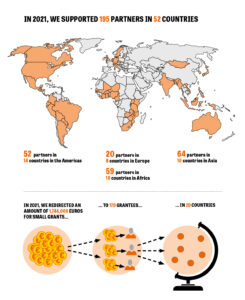
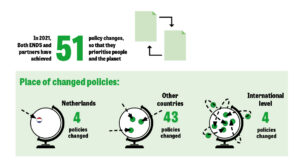
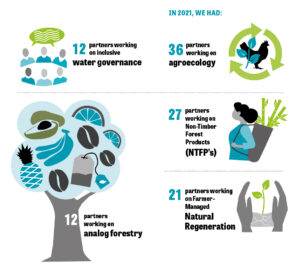
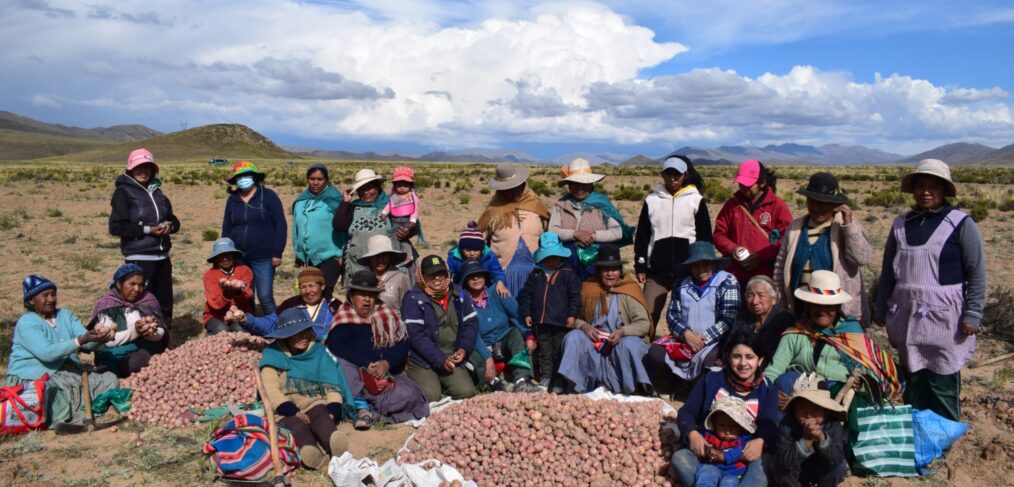
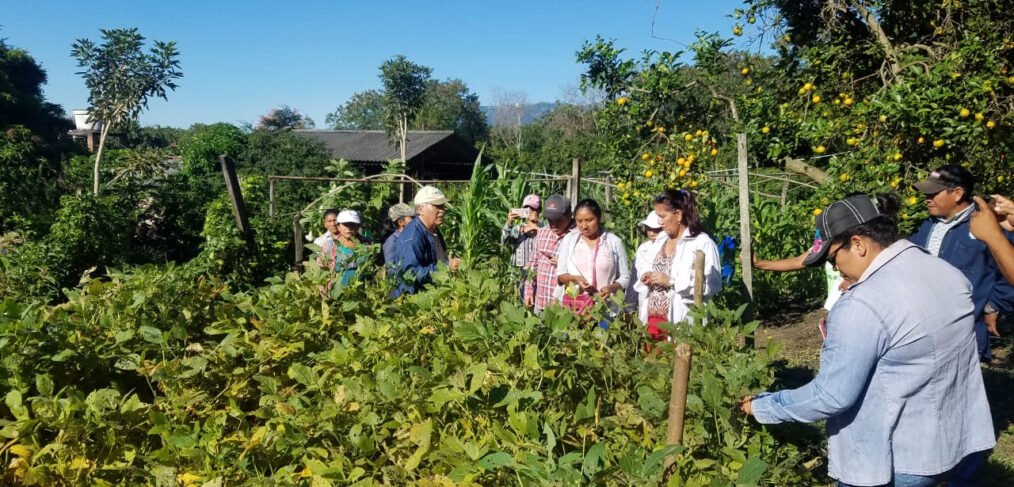
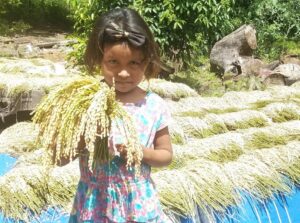
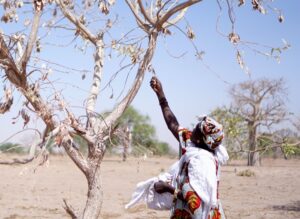
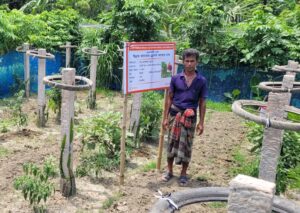
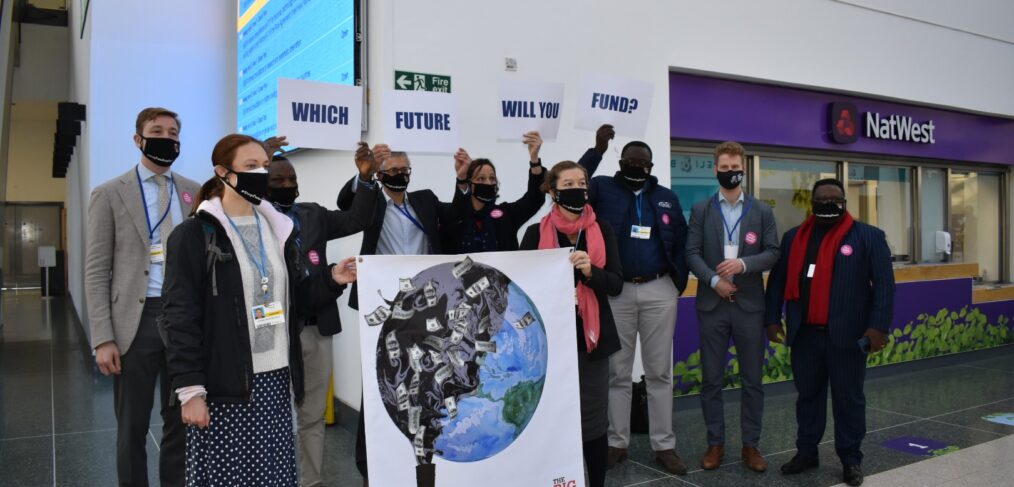
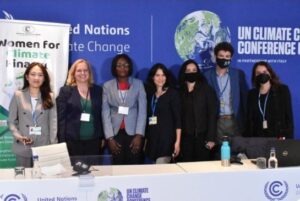
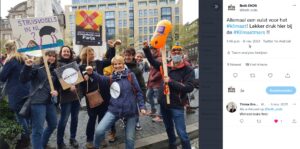
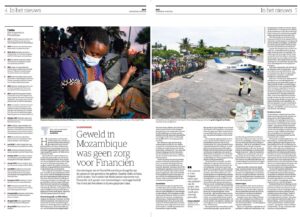

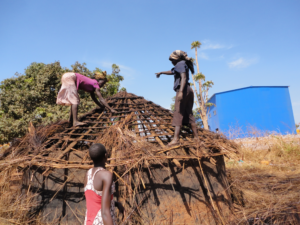
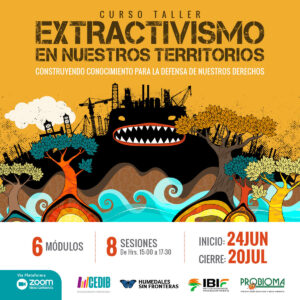
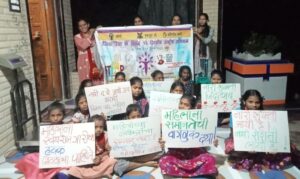 “Companies come to do mining and take our water, forest and land. This is also violence against women” – WHERD Jankabai along with women and children in campaign on issues faced by women – Panna, Madhya Pradesh, India
“Companies come to do mining and take our water, forest and land. This is also violence against women” – WHERD Jankabai along with women and children in campaign on issues faced by women – Panna, Madhya Pradesh, India